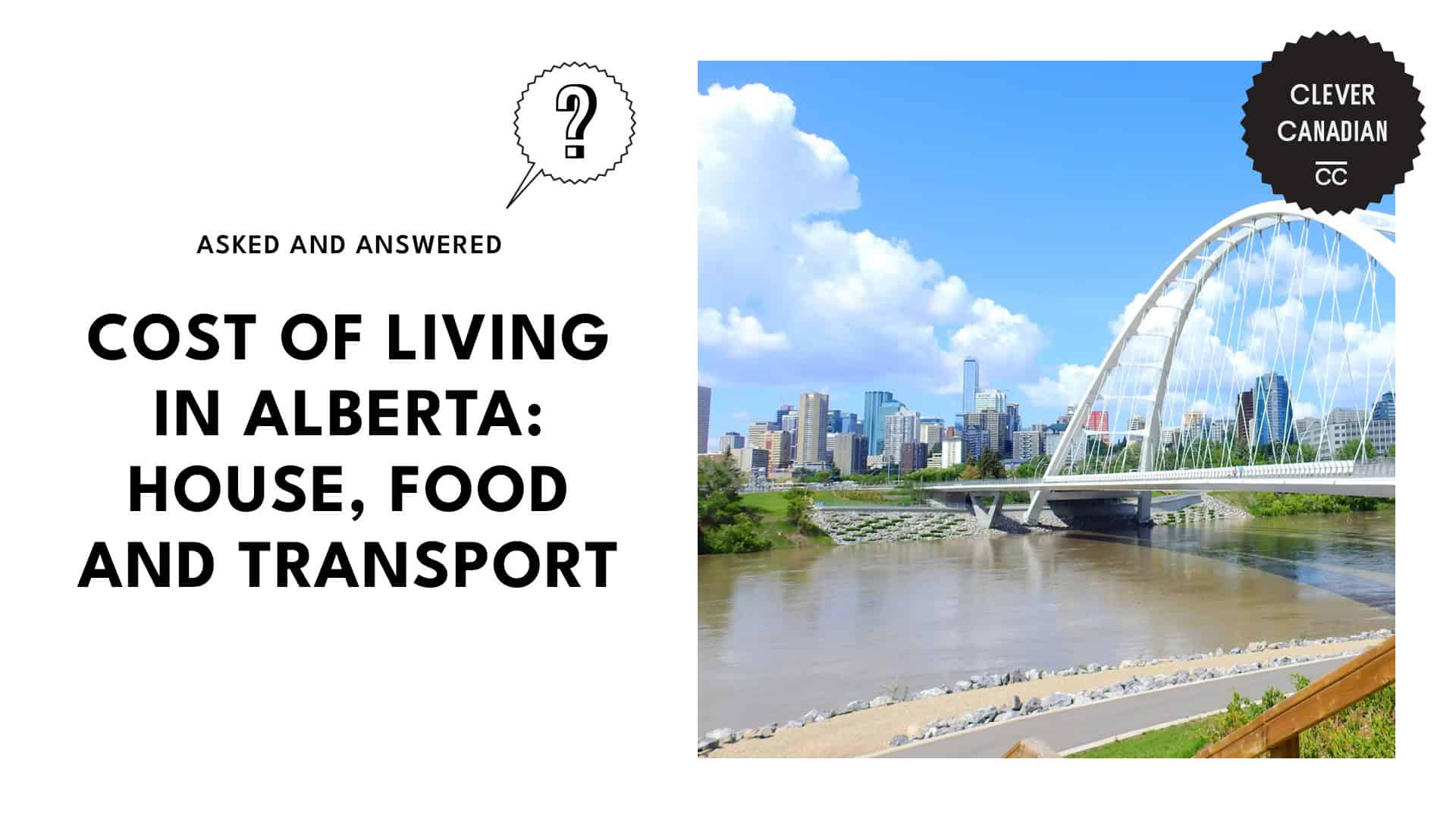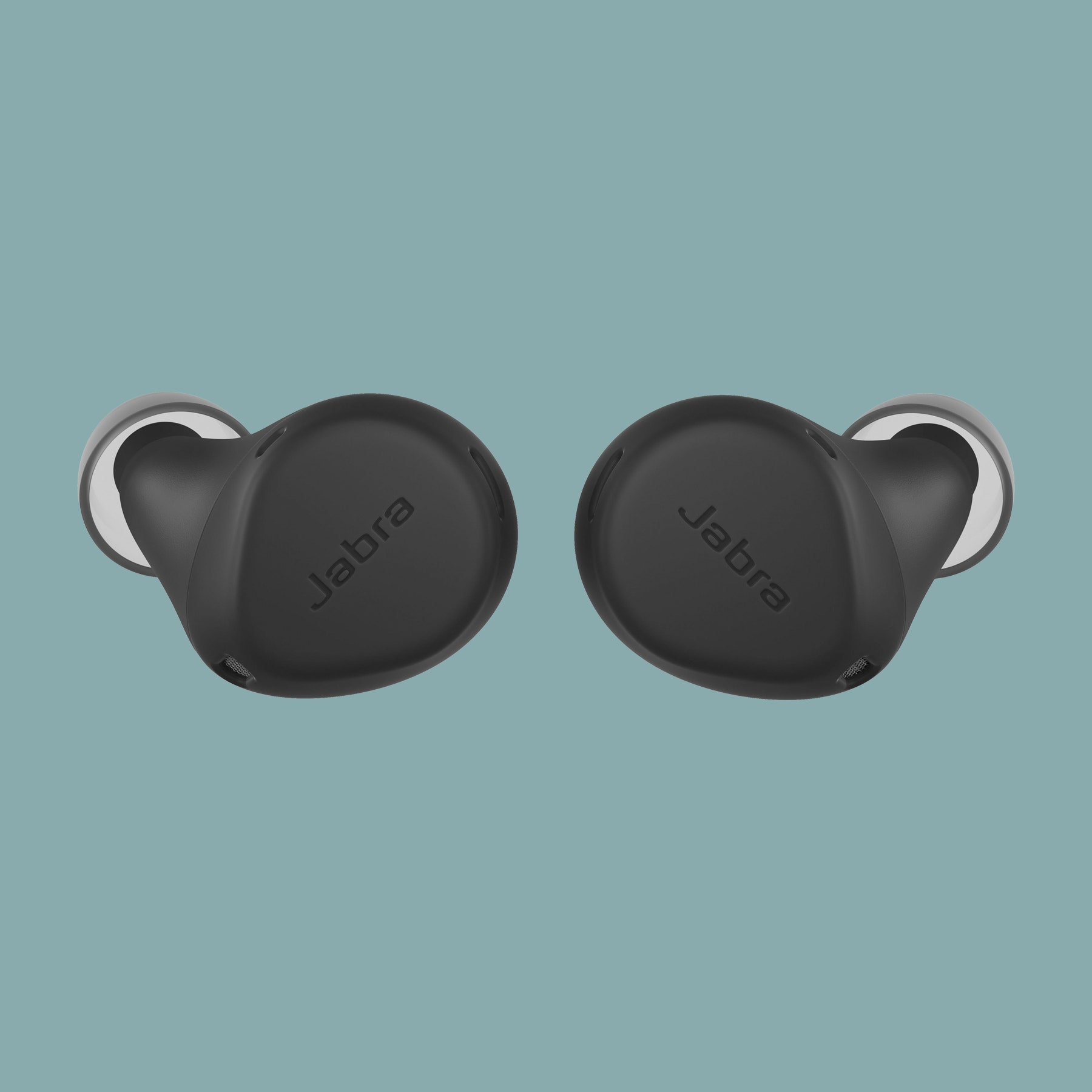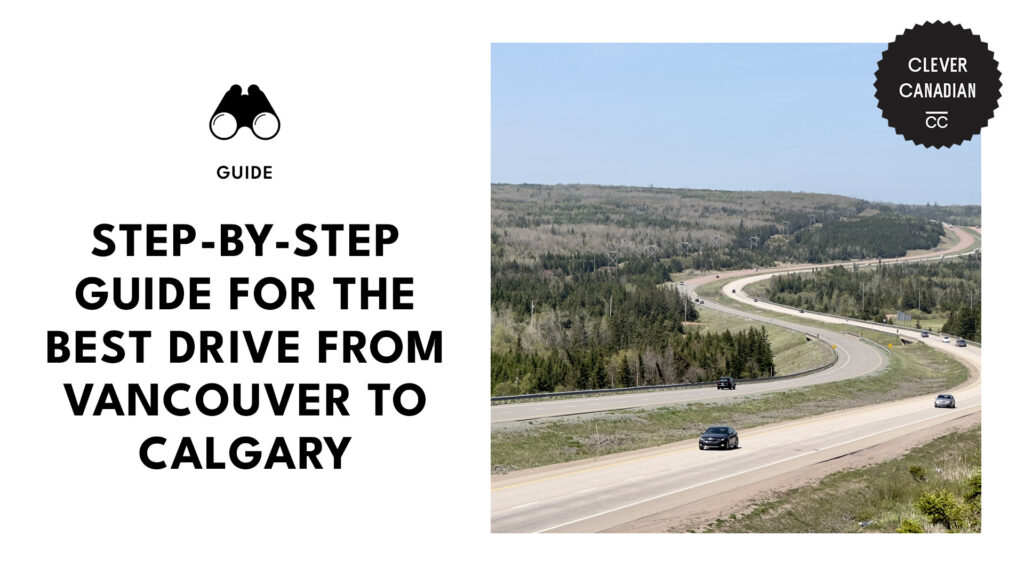Categories > Guides and Tips

Cost of Living in Alberta: House, Food And Transport
Alberta, a western Canadian province, is well-known for its economy, which relies heavily on oil and gas production. It also offers diverse career opportunities, strong educational institutions, and a mix of urban and rural living options.
The cost of living in Alberta, Canada, can be considered moderate compared to other Canadian provinces. According to Made in CA, livable wages in cities like Calgary and Edmonton are approximately $18.6 and $18.1 per hour, respectively.
In a report by LivingCost.org, Alberta was ranked as the 5th most expensive, with costs being 1.05 times more than the Canadian average.
However, the same report highlights that the average salary after taxes in Alberta is sufficient to cover living expenses for around 1.9 months.
To have a deeper understanding of this, keep reading. We will delve more into the crucial aspects of living costs in Alberta, such as housing, food, and transportation, to help you make an informed decision about whether it’s the right place for you.
Housing Value

When it comes to housing in Alberta, costs can vary significantly between cities and regions. Generally, homes and rental properties in major cities like Calgary and Edmonton are more expensive than those in smaller towns and rural areas.
As per the LivingCost.org, the average rent for a one-bedroom apartment in the city centre in Alberta is $914, while a three-bedroom apartment rental averages $1,680.
To provide a clearer picture of the rental costs in Alberta’s main cities, the table below summarises the average monthly rents:
| City | One-bedroom | Two-bedroom |
| Calgary | $1,325 | $1,650 |
| Edmonton | $1,195 | $1,465 |
| Lethbridge | $975 | $1,250 |
| Red Deer | $1,095 | $1,330 |
| Fort McMurray | $1,245 | $1,560 |
When looking into purchasing a home, the 2023 REMAX Housing Market Outlook reports that the average sales price for a home in Alberta’s major cities is as follows:
| City | Average Home Price |
| Calgary | $466.000 |
| Edmonton | $373.000 |
| Lethbridge | $253.000 |
| Red Deer | $302.000 |
| Fort McMurray | $489.000 |
For those who favour smaller communities and scenic surroundings, the prices for detached houses in rural areas or smaller towns tend to be lower than in major cities, offering an affordable entry point into home ownership.
While the cost of housing varies significantly, it is generally more affordable in Alberta compared to other major Canadian provinces like British Columbia and Ontario.
Utilities

The average monthly utility bill for a one- to two-person household in Alberta is approximately $980, which includes electricity, water, and internet.
Similarly, for a larger family of three to five, the average monthly utility bill in Alberta could increase to around $1,672, according to LivingCost.org.
However, these figures are only averages, and households have the potential to lower their utility costs with conscious use and strategic modifications such as:
- Conserve energy by turning off unused lights and electronics.
- Opt for energy-efficient appliances.
- Reduce water waste with low-flow faucets and toilets.
- Upgrade your home’s insulation to lower heating and cooling costs.
A breakdown from LivingCost.org of average monthly utility costs for a one- to two-person household and a family of three to five can be found below:
| Utility item | Prices |
| Utility bill for a single person | $127 |
| Utility bill for a family | $195 |
| Internet plan (50 mbps + 1 mo unlimited) | $59.6 |
Thus, while the average utility costs for households in Alberta might seem high at first glance, proactive measures towards conservation and efficiency can lead to significant savings.
These saving efforts will not only reduce expenditures but also contribute towards a more sustainable and environmentally friendly lifestyle.
Food

The average grocery costs for basic staples in Alberta can range from around $538 to $1405 per month, according to LivingCost.org.
This variation showcases the potential cost differences based on shopping habits, diet preferences, or family size.
Price fluctuations are also common due to factors such as inflation and seasonal supply and demand.
For example, some prices have risen slower than the overall rate of inflation, such as fresh fruit at +3.3% and bakery products at +2.3%, while others have slightly gone down, including fresh vegetables (-0.1%) and coffee and tea (-3.5%).
To provide a clearer overview, the prices of common grocery items and the prices of eating out in Alberta from LivingCost.org are broken down in the following table:
| Groceries | Prices | Eating Out | Prices |
| Bread | $2.21 | Menu for lunch | $10.4 |
| 1 litre of milk | $2.1 | Restaurant dinner | $51.8 |
| 1 kg of rice | $2.53 | Fast food meal | $8.97 |
| 1 kg of chicken breast | $11.1 | Beer in a pub | $5.34 |
| 1 kg of round steak | $13.6 | Coffee | $3.92 |
In Alberta, apart from grocery costs, eating out also contributes to the monthly food expenses of families and individuals. A typical fast-food meal can cost around $10 to $11, while the price for a more luxurious dining experience will be higher.
Food accounts for one of the largest withdrawals from our bank account, frequently making an appearance in our top expenditure list.
Understanding and managing food and grocery costs in Alberta requires balance according to personal preferences, maintaining a budget, and continuously comparing and reviewing prices at various marketplaces.
Please note, these are only average prices and actual costs can vary depending on your specific circumstances and choices.
Transportation

Public transportation in Alberta varies in cost depending upon the city. For instance, major cities like Edmonton and Calgary offer efficient services.
The monthly pass for Edmonton Transit System (ETS) costs around CAD 97, while in Calgary, the monthly pass for Calgary Transit costs about CAD 109.
Here’s a breakdown of the transportation expenses from LivingCost.org related to living in Alberta.
| Transportation (Fare) | Prices |
| 1-way ticket (local transport ticket) | $1.86 |
| Monthly pass (local transport ticket) | $51.1 |
| Taxi start (normal tariff) | $16 |
| Gasoline (1 litre) | $1.4 |
For individuals choosing to drive personal vehicles, costs would include gasoline prices (which hover around CAD 1.4 per litre), vehicle registration, maintenance, and insurance3.
It’s worth noting that Albertans generally pay a higher proportion of their income on transportation than most other Canadian provinces.
Our Final Verdict: Is it expensive to live in Alberta?
Alberta’s cost of living, like any place, vastly hinges on personal lifestyle, income, and how one chooses to allocate funds across housing, food, and transportation.
When compared to other Canadian provinces like British Columbia and Ontario, housing in Alberta is relatively more affordable. This affordability extends to smaller communities, which offer scenic surroundings and a quieter lifestyle.
Here’s a summary of the monthly cost of living in Alberta from LivingCost.org:
| Factors | One person | Family of 3-5 |
| Total monthly rent | $1,727 | $4,068 |
| Total monthly without rent | $661 | $2,193 |
| Rent and utilities | $1,066 | $1,876 |
| Food | $487 | $1,272 |
| Transport | $52.7 | $143 |
Utilities can add a significant amount to the monthly budget, especially for larger families. Alberta’s utility costs, at first glance, may seem steep, but with conscious energy use and efficient appliances, these costs can be actively managed.
The cost of food in Alberta varies greatly based on dietary preferences and whether one prefers to eat out regularly or cook at home. The cost of grocery essentials can lead to significant monthly expenses, and eating out can add substantially to this.
Public transportation costs in Alberta can fluctuate based on the city, with Edmonton and Calgary having reasonably efficient and economic city transit systems.
Lastly, while Alberta does present certain cost challenges, it offers a comparative advantage in housing affordability, especially in the face of rising real estate prices across the nation.
Combining this with proactive measures in managing utilities and food costs, and a careful consideration towards transportation, living in Alberta could still be an economically viable option.






